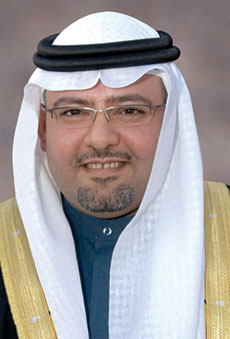Religious Discourse: from ‘Obligatory’ to a ‘Guideline’
Due to the objection of some religious figures to the decision
of the Minster of Justice , No 2 for 2009, to regulate religious
discourse ( the responsibility of the administration of Sunni and
Shia endowments) the Justice Minister amended the decree describing
it as a ‘guideline’ as opposed to being obligatory (Al-Ayam, 3 July
2009).
 |
| Justice Minister |
The former regulations, consisting of 14 articles, called for
religious lectures, lessons and preaches to ‘ promote national identity
and defend its principles’ and ‘respect the principle of good citizenship
and co-existence’ as well as ‘be considerate of other religious
sects and respect diversity and avoid anything that would incite
sectarianism’. The regulations recommended adopting a moderate approach,
avoiding being biased when dealing with controversial subjects and
being tolerant of others. This is in addition to calling for forgiveness,
communication, dialogue, respecting others; as well as respecting
the sanctity of human life, the belongings of others and their honor.
Moreover, the regulations also called for respecting the rights
of our fellow human beings, in general, and especially the rights
of non-Muslims.
The regulations also recommended interacting with other civilizations
and to not ‘insult present or past Islamic figures directly or indirectly’
and ‘incite people with religious rulings that consider others as
infidels and lewd’. The regulations also stressed the necessity
of ‘respecting human rights as affirmed by Sharia law and international
conventions and not ‘manipulate religious discourse for the benefit
of some political interests, parties or an election campaign’.
|



